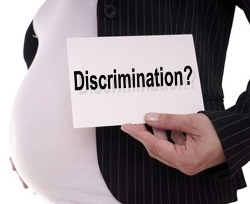Get in touch 0117 325 0526
Get in touch 0117 325 0526
 Summary: Do employers need to provide childcare vouchers during maternity leave?
Summary: Do employers need to provide childcare vouchers during maternity leave?
No, says the EAT in Peninsula Business Services v Donaldson available here.
Background: Under the Maternity and Parental Leave Regulations 1999, women on maternity leave are entitled to receive non-cash benefits but not pay. HMRC guidance states that employees must continue to receive non-cash benefits provided under their salary sacrifice scheme whilst on maternity leave and stated that childcare vouchers are such non-cash benefits. Accordingly, they should be maintained during maternity leave.
Facts: Ms Donaldson was employed by Peninsula Business Services Ltd (Peninsula), which offered its employees a childcare voucher scheme by way of salary sacrifice. Peninsula made it a condition of entry to the scheme that, in the event of the employee being on maternity leave, provision of childcare vouchers would be suspended and salary would be treated as returning to its previous level for that period. Ms Donaldson, who was pregnant at the time of wishing to join the scheme, believed the condition of entry was discriminatory and so refused to join.
Ms Donaldson brought claims for detriment and sex discrimination. She argued that the Maternity and Parental Leave Regulations 1999 required childcare vouchers to be provided during maternity leave, and that by making it a condition of entry to the scheme that she agree to give up this right, Peninsula had:
Ms Donaldson was successful in her claim. The Tribunal found that it was discriminatory to have a condition of entry to the scheme that employees have to withdraw from the scheme while on maternity leave. In particular the Tribunal relied on the HMRC guidance which states that employees must continue to receive childcare vouchers provided under their salary sacrifice scheme whilst on maternity leave.
Peninsula appealed. The EAT allowed the appeal. The EAT considered whether the vouchers constituted pay or whether they were in fact a non-cash benefit that had to be continued during maternity leave.
The EAT decided that the vouchers amounted to pay. The vouchers represent part of the employee’s salary by virtue of the fact that the vouchers are a substitution for pay under a salary sacrifice scheme. The EAT regarded the phrase “salary sacrifice” as misleading, commenting that “it is in reality not a sacrifice but a diversion of salary, which the employee has earned but which is redirected prior to it being placed in the employee’s pay packet, in order to purchase vouchers … The sum by which the voucher is purchased is that which is payable to the employee”.
The EAT stated that it could not have been Parliament’s intention to require employers to continue providing vouchers at a time when there was no salary that could be sacrificed in respect of them. Moreover, it ruled that there was no legislative basis for the HMRC guidance the Tribunal relied upon in its decision.
However, the EAT in its decision expressed its conclusions “somewhat tentatively”, aware that there might be legislative or other considerations which it had not taken into account when making its decision. The EAT also considered that it was not easy to classify childcare vouchers as remuneration, acknowledging that the arguments were finely balanced.
Implications: Although welcome news for employers, this decision does need to be treated with some caution in light of the complex law in this area and the EAT’s own uncertainties about its decision. There may yet be a different decision from a higher court.
In light of the above, employers may wish to wait and see how further case law develops, before deciding whether to change their practices in relation to childcare vouchers and the terms and conditions on which they are offered.
Nevertheless, employers may see the decision as an opportunity for suspending the provision of childcare vouchers to employees on maternity leave where those vouchers are provided by way of a salary sacrifice scheme. However, any employer considering changes to any current childcare benefit scheme already in place is strongly recommended to take legal advice before doing so.
In any event, the Chancellor announced in the Budget on 16 March 2016 that childcare voucher schemes will be closed to new entrants from April 2018. Existing members at that date will be able to continue for so long as the employer chooses to continue operating the scheme.

5.0/5